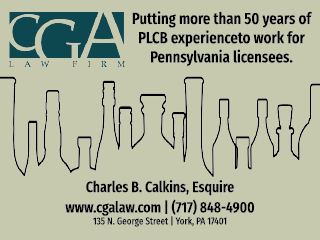Testimony: SB 983, SB 984, and other forms of tavern aid
The following is testimony given by Thomas Tyler, president of the Pennsylvania Licensed Beverage and Tavern Association, on January 26, 2022, in front of the Pennsylvania Senate Community, Economic, and Recreational Development Committee. The hearing was held to discuss other forms of aid for small businesses to help them through the COVID era. Mr. Tyler is also the owner of McStew’s Irish Sports Pub in Bucks County and a committed member of Organized Taverns through the PLBTA.
Chairman Yudichak, Chairwoman Cappelletti, and members of the Committee, thank you for allowing the Pennsylvania Licensed Beverage and Tavern Association to provide testimony concerning legislation to support the economic recovery of small businesses negatively impacted by past COVID mitigation orders.
Also, I want to acknowledge my establishment’s state senator. Thank you, Sen. Tomlinson.
As background, the Tavern Association is the statewide voice for small business taverns and licensed restaurants. We represent family-owned taverns, pubs, and licensed restaurants across the state. Most of our Members own “R” or “H” licenses while some may have an “E” or even a club license. For the most part, we are your local bars, taverns, pubs, and licensed restaurants. We do not actively recruit large chains, grocery stores, or convenience stores which also may have R licenses.
Our average Member has only 16 employees, possibly the smallest of the small businesses within the hospitality industry.
In terms of business, our average Member makes a living primarily from alcohol sales. Based on our Membership studies, about 63 percent of their business is alcohol sales including liquor and malt beverages and 37 percent of sales are from food. This is a major reason why the events of recent years have created financial hardships for my membership.
Many people don’t realize that COVID was the second financial gut punch our Members took in recent years. The first came a few years earlier through Act 166 of 2016 when the tavern and licensed restaurant industry lost the exclusive rights to sell six-packs to go.
A study conducted by the Tavern Association in 2019 to measure the impact this Act had on our Members discovered that 75 percent of our members saw a drop in six-packs-to-go sales, with about 30 percent losing about 20 percent in beer sales.
And other changes to liquor laws related to that Act which promoted specific segments of the alcoholic beverage industry tilted the playing field and resulted in even more lost revenue for our small family-owned businesses.
And, then came the pain of COVID-19 closures in 2020, which continued off and on through part of 2021, followed by related issues that continue today such as variants, supply shortages, and workforce issues. As many as 20 percent of our small business bars and taverns found themselves closed for business.
Our bars, taverns and restaurants greatly appreciate the efforts and intentions of Sen. Aument, and the other cosponsors of SB 983 and SB 984. There’s no question that our members need support from the state to recover from the losses they’ve suffered while complying with state edicts over the last two years.
Needless to say, we don’t believe any small business will complain about receiving a no-interest loan as a result of SB 983 or receiving a grant through SB 984. We support both but offer some thoughts on each.
Regarding SB 983, the Tavern Association supports the concept of interest-free loans being made available. Some of our members will certainly make use of these no interest loans. At the same time, given their already problematic economic situations – and still trying to get back to some form of normalcy, more borrowing may not be a solution for those bars and taverns who have lost income and already dipped into their life savings to stay open.
And, regarding SB 984, again, the premise is sound. Grants for our members who did not receive grants previously – only about one in three did – and basing the grants on lost profits/losses and loss of employees just makes sense. Hopefully, the system for approvals will be improved from our experiences with the state’s CHIRP program or Washington’s Restaurant Relief Fund which sounded good, but left a sour taste in the mouths of many of my Members who applied but received nothing.
I would also note that the other pieces of legislation included in the small business relief package, including changes in Net Operating Loss offsets, waiving fees for retail food and liquor licenses, and the ability to deduct property taxes from owners’ CNI or PIT liability, are all positive steps, and would benefit our members.
Finally, I’d like to share that there are several other bills that would be helpful to our small businesses attempting to climb out of the economic hole created by state actions. Some of these may come to this committee, while others will be addressed elsewhere.
For example:
- Legislation to increase the liquor discount from 10 percent to 15 percent. This legislation passed the House in 2021 with a unanimous vote. This would be across the board, and have a minimal impact on the PLCB’s profits, but be very meaningful to our members’ cash flow as they struggle to stay afloat financially.
- Legislation to level the playing field for all licensees, and standardize the rules for amplified sound limits at property lines. Today, one of our members could be fined for ANY sound at their property line – but other licensees do not have the same restrictions. Modification of these rules would help incentivize our members to expand outside, and allow entertainment which attracts consumers.
- Allow business owners more opportunities to get creative with special promotions and happy hours, opening channels for new specials and specially priced combos. Our Happy Hour laws – like many others in this industry, are a throwback to earlier times, Blue laws, and control, not reflective of today’s consumers or markets. It’s time to allow licensees to make these financial decisions for themselves.
- And, we would again request you consider mixed drinks to go. Legislation to do this has passed the House twice with 170 votes or more. During the Covid-19 restrictions, this gave our members a small opportunity to maintain cash flow and expand offerings, without any increase in the incidence of liquor related accidents or arrests. According to the Distilled Spirits Council of the United States, 33 states adopted alcohol-to-go programs in the early days of COVID-19. Of those, 15 have extended approval of the programs, and 16 have passed laws enshrining the practice for good, including Among our neighbors, Ohio, Maryland (through 2023), and West Virginia and Delaware continue to allow this, and Delaware is voting on legislation to make it permanent as well. New York Governor Kathy Hochul just called for that state to make mixed drinks to go permanent there. New Jersey passed legislation last year allowing local governments to authorize cocktails to go and open container laws.
Decisions on the small business package and these pending issues are important to our family-owned businesses. Permanence in these rules gives us as small business owners some certainty to start rebuilding our business models. And our customers – your constituents – will benefit as well.
The Pennsylvania Licensed Beverage and Tavern Association looks forward to working with members of this committee and other senators on these issues.
Thank you again for inviting our Association to testify today. I’ll be happy to answer any questions you may have at this time.







